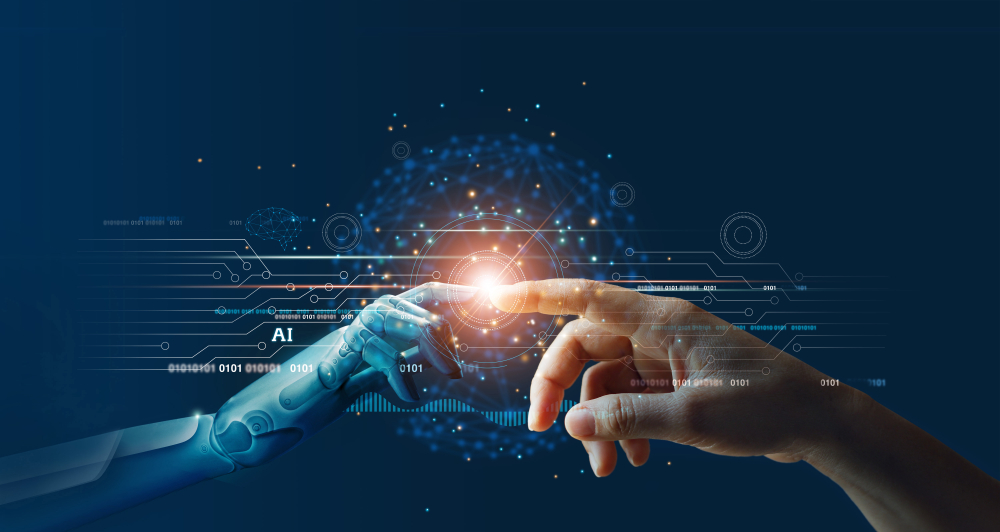Artificial Intelligence and the Prospects of Labor: Transforming Positions in Business

Within today's rapidly evolving business landscape, artificial intelligence is not just a technical advancement; it is a transformative force reshaping how companies operate. When companies venture into the age of AI, they are finding a new realm of possibilities that improve efficiency, boost decision-making, and foster innovation. The inclusion of AI into business processes is changing roles and duties, compelling workers to adapt to a team-oriented environment where people's abilities and machine capabilities complement each other.
The advantages of using AI in business are diverse, ranging from automating routine tasks to offering profound insights through data analysis. This technology allows organizations to simplify operations, reduce costs, and boost productivity, allowing employees to focus on higher-value tasks that require creativity and strategic thinking. As we examine the advantages of AI in the workplace, it becomes clear that the future of work will be characterized by a mutually beneficial relationship between humans and artificial intelligence, creating a new synergy that drives success in the modern economy.
Impact of AI on Job Roles
The advent of AI into the work environment is leading to substantial shifts to job roles across multiple industries. As AI technologies become more advanced, they are handling repetitive and routine tasks, allowing employees to focus on the strategic aspects of their work. This transition enhances productivity and encourages innovation, as human workers are freed from time-consuming duties and are able to commit their resources to problem-solving and strategic choices.
Additionally, AI is generating new roles that did not exist before. These positions often require a combination of technical skills and domain-specific knowledge, such as AI ethics officers, data analysts, and AI trainers. This development in job roles not only reflects the shifting nature of work but also underscores the need for continuous learning and upskilling among the workforce. As businesses integrate AI technologies, they are committing to training programs to prepare employees with the necessary skills to prosper in this evolving environment.

There are also worries about the loss of jobs due to AI deployments. While some traditional roles may decline, many experts contend that AI will not completely replace human workers but will rather enhance their capabilities. This collaboration between AI and humans can lead to increased job satisfaction, as employees engage in more purposeful work and leverage AI tools to get superior results. The prospects of work will likely see a collaboration that optimizes the strengths of both AI and human intellect.
Capabilities for the AI-Powered Labor Force
As companies progressively incorporate AI into their processes, the requirement for a new set of competencies is emerging. Employees must adapt from conventional roles to ones that complement AI systems. This includes interpretative skills to interpret data and the ability to partner with AI systems. Grasping how to harness AI instruments properly will be crucial for boosting productivity and propelling innovation in diverse fields.
Inventiveness and troubleshooting are becoming more valuable as AI automates repetitive tasks. Workers are expected to employ their particularly human traits to create solutions that AI cannot provide. This indicates that abilities such as analysis, adaptability, and collaboration will boost how individuals can operate in a space where AI automates many standard functions. Nurturing these skills will prepare the labor force to tackle difficult issues and take advantage of AI's capabilities.
Moreover, digital literacy is crucial in an AI-driven environment. Employees should be comfortable with digital tools and eager to acquire new applications that incorporate AI into processes. Constant learning and training will be vital, as the landscape of AI is always evolving. By encouraging a culture of continuous learning, businesses can ensure their workforce stays efficient and prepared to take advantage of AI developments for improvement and productivity.
Ethical Issues in AI Implementation
The implementation of AI in organizations brings with it substantial moral considerations that organizations must tackle to ensure responsible use. One key concern is the potential for bias in AI algorithms, which can lead to unfair treatment of individuals based on ethnicity, sex, or additional criteria. Businesses must dedicate themselves to transparency in their AI systems and regularly monitor for biased outcomes, ensuring that the technology serves all customers and employees fairly.
Another crucial aspect is the effect of AI on employment. While AI can enhance productivity and efficiency, it can also eliminate jobs, especially in routine tasks. business intelligence should adopt a proactive approach by retraining their workforce and creating new roles that utilize human creativity and critical thinking, fostering a collaborative environment where humans and AI work together rather than in rivalry. This approach not only helps reduce job loss but also promotes a culture of innovation and adaptability.
Additionally, privacy and data security are paramount. As AI systems often rely on vast amounts of personal data, businesses must implement stringent data protection measures and comply with regulations. Companies should prioritize the ethical handling of data, ensuring that customers' information is used ethically and with permission. By addressing these moral considerations, businesses can harness the benefits of AI while maintaining trust and integrity in their operations.
